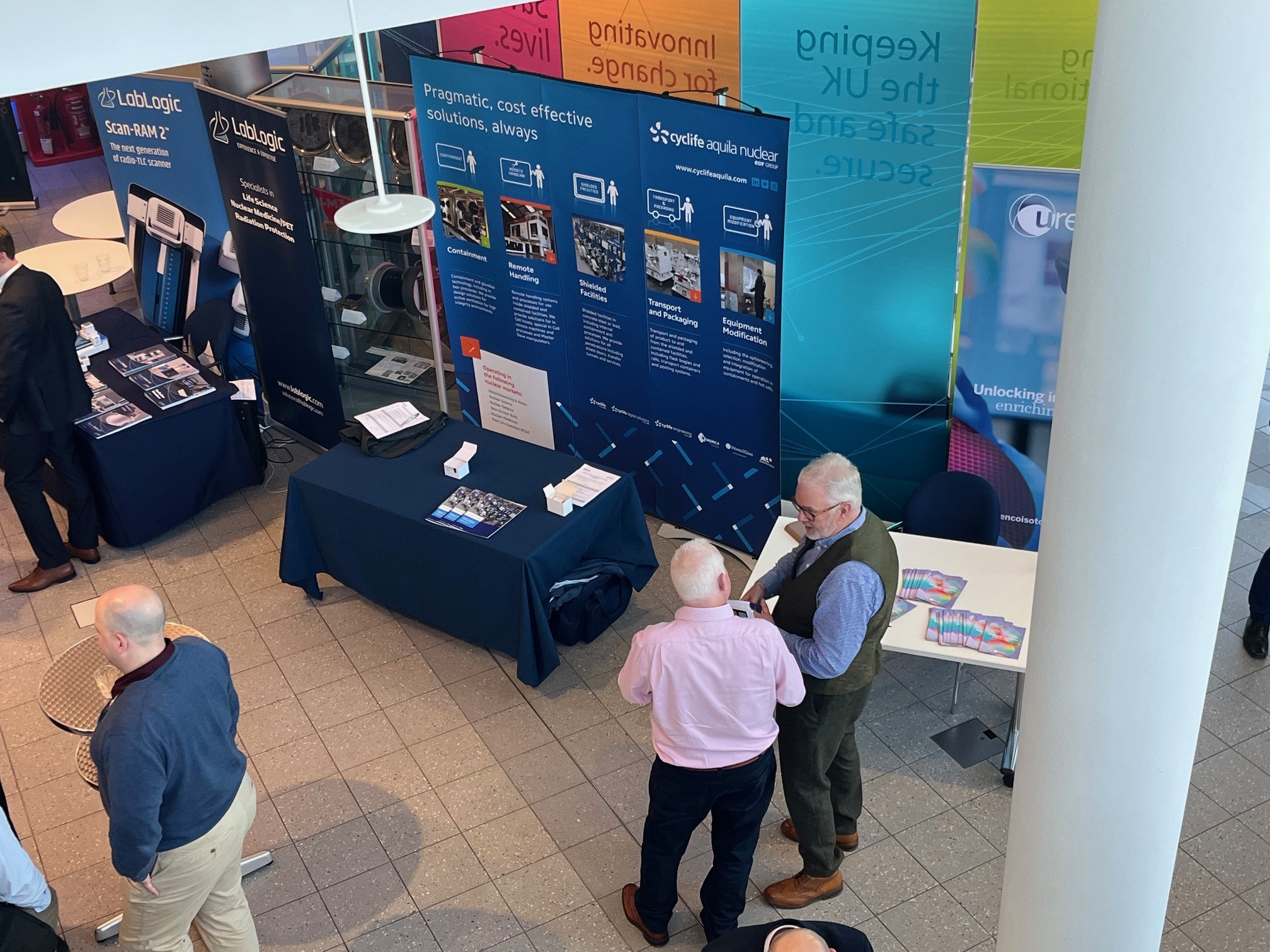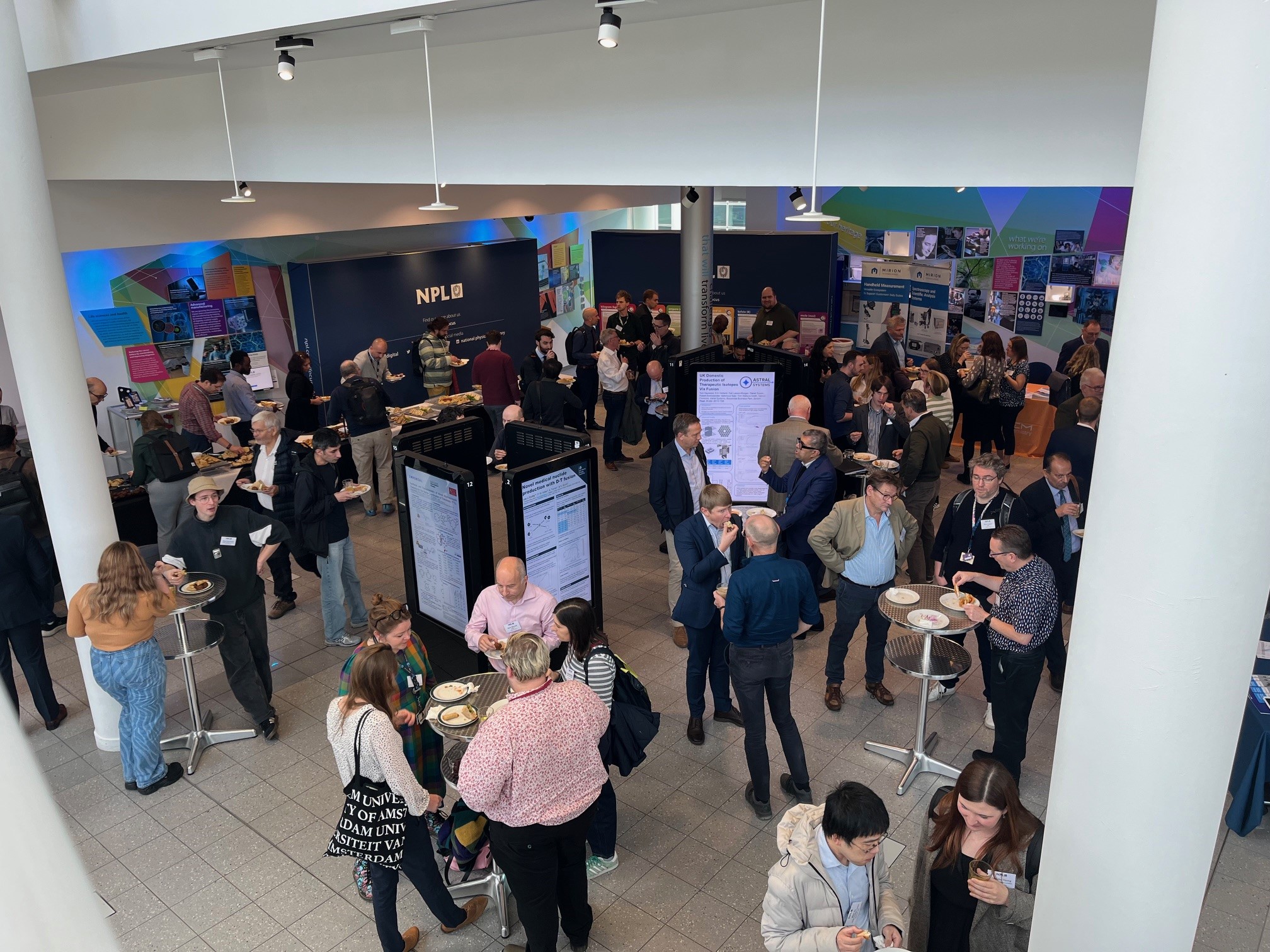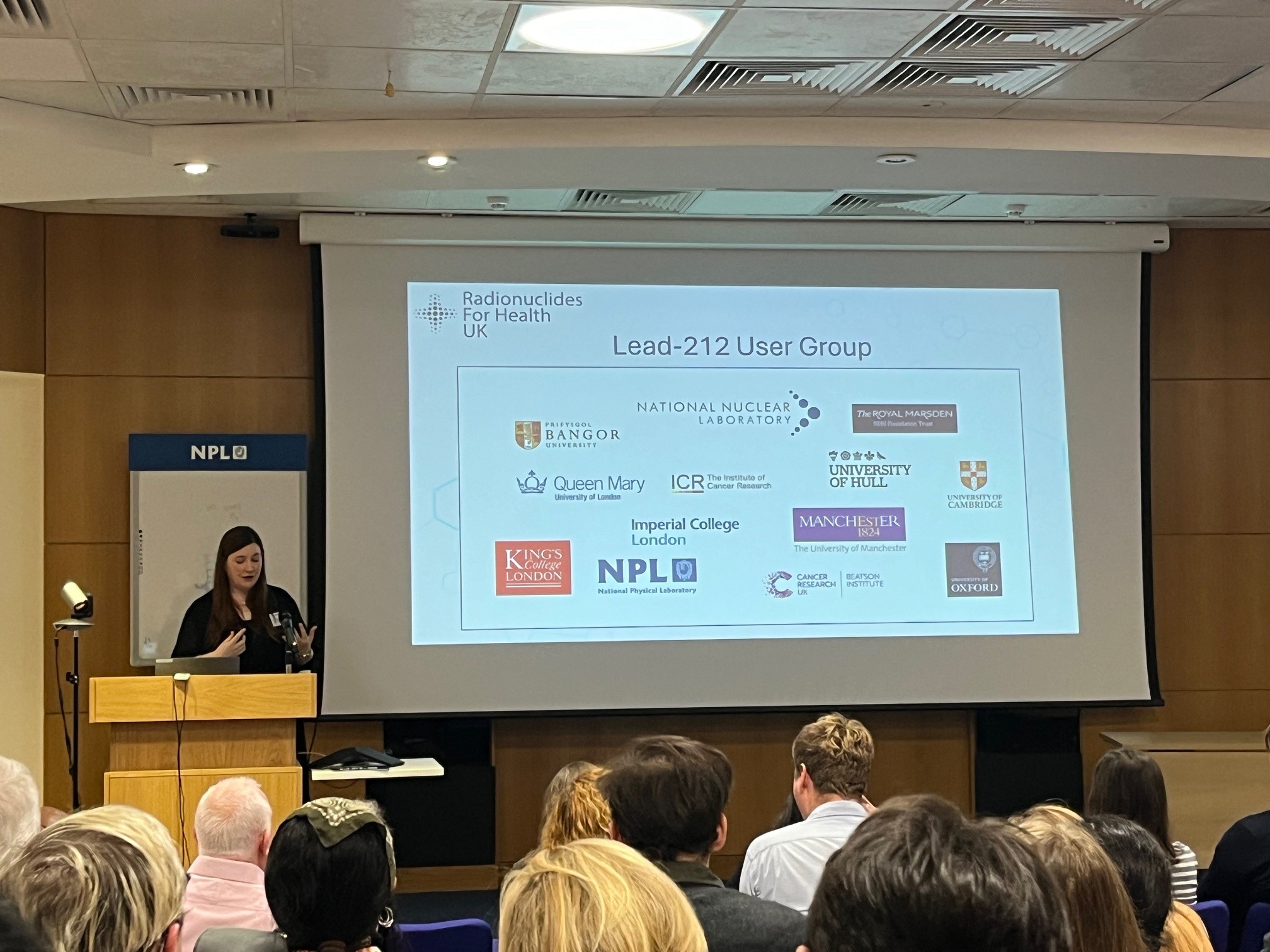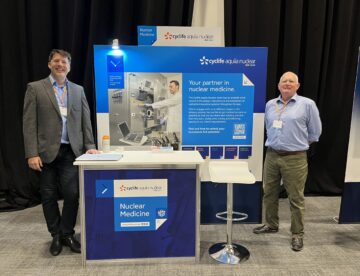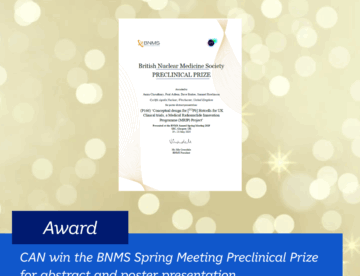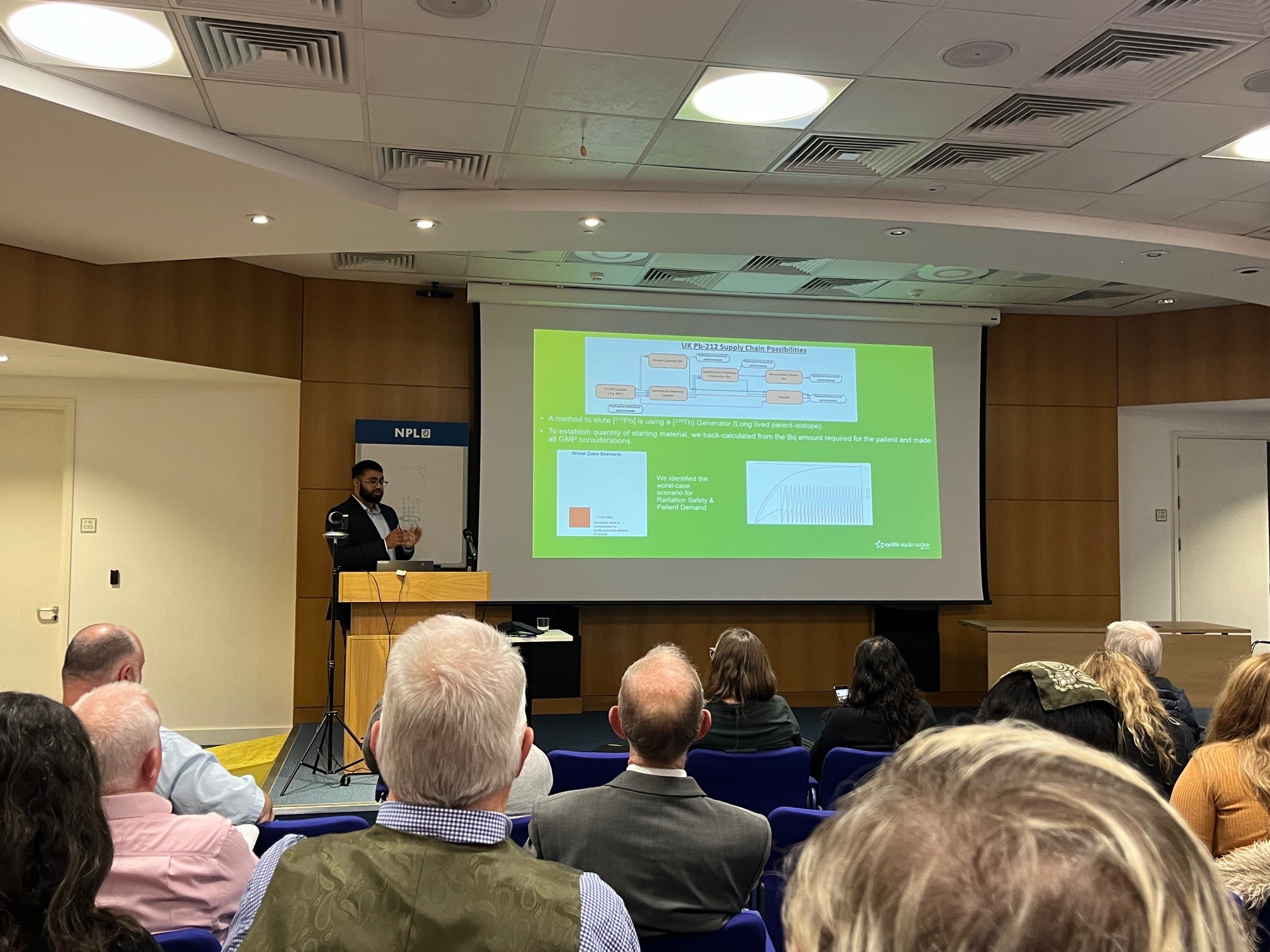
CAN attends NPL’s ‘Radionuclide Production in the UK’ event
Last week, Dave Barker, Director of Strategy, Paul Adlem, Customer Manager, Amin Choudhury, Scientific Officer and Keith Strong, Principal Mechanical Design Engineer had the privilege of attending the ‘Radionuclide Production in the UK’ workshop at the National Physical Laboratory (NPL) in Teddington. The event was hosted by NPL and the Royal Society of Chemistry (RSC) and brought together leading experts to explore the current landscape and future potential of radionuclide production for nuclear medicine and other applications. The day was packed with insightful presentations and discussions, showcasing the incredible strides we’re making in this critical field. Below are a few standout moments that left a lasting impression:
Radionuclides for Health UK
One of the most enlightening talks of the day came from Jennifer Young of King’s College London. Her presentation on “Radionuclides for Health UK” painted a vivid picture of the transformative potential these innovations hold for our healthcare system. Jennifer’s expertise shone through as she detailed the latest advancements and the roadmap for integrating these cutting-edge technologies into clinical practice. It was inspiring to see how the UK is positioning itself at the forefront of nuclear medicine, with a clear focus on improving patient outcomes and expanding treatment options.
Local Production of Lead-212: Overcoming Challenges for Better Patient Care
We were particularly proud to see our Scientific Officer, Amin Choudhury take to the stage to discuss “Hot cell Design Considerations for Pb-212 Generators.” His talk shed light on the complexities involved in the local production of Lead-212 and the innovative solutions being developed to overcome these challenges. Amin’s expertise in this area is a testament to the talent we have in our team, and it was gratifying to see our work recognised in such a prestigious forum.
Nuclear Medicine Infrastructure
What struck us most about this event was its comprehensive nature. From cutting-edge research to practical considerations of production and supply chain management, the workshop covered all aspects of the infrastructure changes needed to support and drive innovation in nuclear medicine within the UK.
The diverse range of topics included:
- The UK Medical Radionuclide Innovation Programme
- Advanced Radioisotope Technology for Health Utility Reactor (ARTHUR) Programme
- Development of UK Astatine-211 Production Capability
- End-to-End Accelerator Production of Actinium-225 from Radium-226
- Extraction of radionuclides for Targeted Radionuclide Therapy from UK Legacy Material
- Nuclear Medicine trends and supply chain considerations
As we reflect on the event, we are filled with optimism about the future of nuclear medicine in the UK. The collaborative spirit, innovative thinking, and dedication to improving patient care were palpable throughout the day. It’s clear that we’re on the cusp of a new era in UK, healthcare, one where targeted, personalised treatment become the norm rather than the exception.
We want to extend our thanks to the organisers, speakers, and attendees who made this event such a success. The connections made and knowledge shared will undoubtedly catalyse further advancements in the field.

